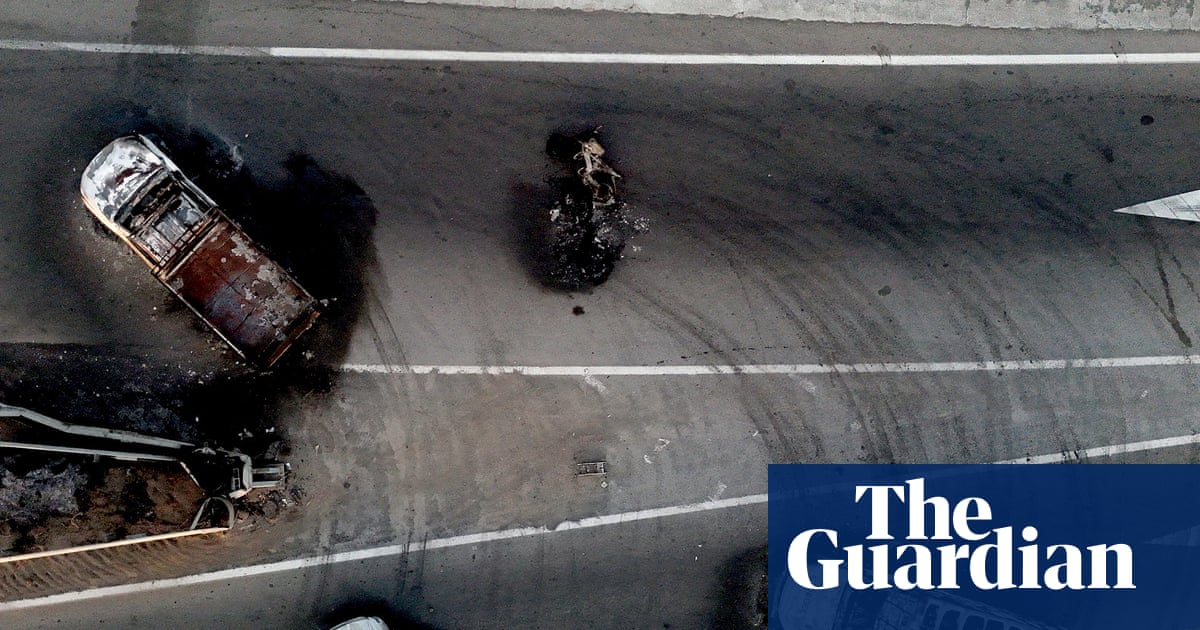The Home Office has squandered billions of pounds on asylum accommodation due to long-term mismanagement of a “failed, chaotic and expensive” system, according to a report published by a powerful parliamentary committee.
The Commons cross-party home affairs committee report, published on Monday, highlights the previous and current governments’ failures to manage the mix of hotels, large sites such as the Wethersfield former military base in Essex, and shared housing.
It also found the Home Office “incapable of getting a grip on the situation” and identified “failures of leadership at senior level”.
The report raises concerns about financial mismanagement of 10-year contracts with the private providers Clearsprings, Mears and Serco, which began in 2019, with the contract value tripling from £4.5bn to £15.3bn.
As the cost soared, failings went unnoticed and unaddressed due to inadequate oversight, the report says. Poor performance was not penalised and excess profits were not reclaimed.
Despite hotels accounting for more than 75% of asylum accommodation spending, no performance penalties were applied to asylum hotels, Napier barracks at Folkestone, or Wethersfield. Meanwhile, under a profit-share agreement, Mears has £13.8m to pay back to the Home Office and Clearsprings £32m, but the Home Office has yet to complete the necessary audit.
The report also says: “We are deeply concerned by the volume of evidence indicating significant safeguarding failings in asylum accommodation.”
It particularly raises the alarm about children being wrongly age-assessed as adults by the Home Office and inappropriately placed in adult accommodation.
In its response to the report, a Home Office spokesperson said: “The government is furious about the number of illegal migrants in this country and in hotels. That is why we will close every single asylum hotel – saving the taxpayer billions of pounds … We have already taken action – closing hotels, slashing asylum costs by nearly £1bn and exploring the use of military bases and disused properties.”
The report identifies a number of specific financial failings, including the purchase of the Northeye estate in Bexhill, East Sussex, in September 2023 for £15.4m when it had been sold for only £6.3m a year before. Officials later found the site was contaminated and did not use it. The Home Office spent £48.5m on RAF Scampton in Lincolnshire, but cancelled that plan due to soaring costs before any asylum seekers moved in. In one case, a Home Office taskforce found that 244 bed spaces had been charged for that did not exist.
Hundreds of millions were wasted on the Rwanda scheme including £290m paid directly to the Rwandan government, although only four volunteer asylum seekers ever went there. The average cost of shared asylum housing a night is £23.25, while the average costs of a hotel place a night is £144.98.
Steve Lakey, the managing director of Clearsprings, told the committee that hotels were more profitable for them than other forms of accommodation. The report finds “a great disincentive” for accommodation providers to move people out of hotels.
Dame Karen Bradley, the chair of the home affairs committee, urged the Home Office to learn from its previous mistakes to avoid repeating them. She also raised concerns about the department’s ability to develop a long-term strategy for asylum accommodation, saying it had focused instead on short-term, reactive responses.
after newsletter promotion
She said: “The Home Office has presided over a failing asylum accommodation system that has cost taxpayers billions of pounds. Its response to increasing demand has been rushed and chaotic, and the department has neglected the day-to-day management of these contracts. The government needs to get a grip on the asylum accommodation system in order to bring costs down and hold providers to account for poor performance.
“Urgent action is needed to lower the cost of asylum accommodation and address the concerns of local communities. While reducing hotel use is rightly a government priority, there will always be a need for flexibility within the system, and the Home Office risks boxing itself in by making undeliverable promises to appeal to popular sentiment. It shouldn’t set itself up for more failure.”
A British Red Cross spokesperson said: “This report confirms what we’ve long seen: asylum accommodation often leaves people feeling unsafe and, at times, having their basic needs go unmet.
“Any new government strategy for asylum accommodation should ensure people can live in safety and are treated with compassion and dignity, with proper vulnerability screening and safeguarding on arrival and throughout the process.”
Enver Solomon, CEO of the Refugee Council, said: “Hotels should never have become a long-term solution. There is a better way. By speeding up decisions for people from countries where we know most asylum applications succeed, subject to rigorous security checks, the government could end the use of expensive asylum hotels in 2026. The Home Office could then move on to ensuring our asylum system works in a fair and efficient way.”

.png) 3 months ago
107
3 months ago
107

















































